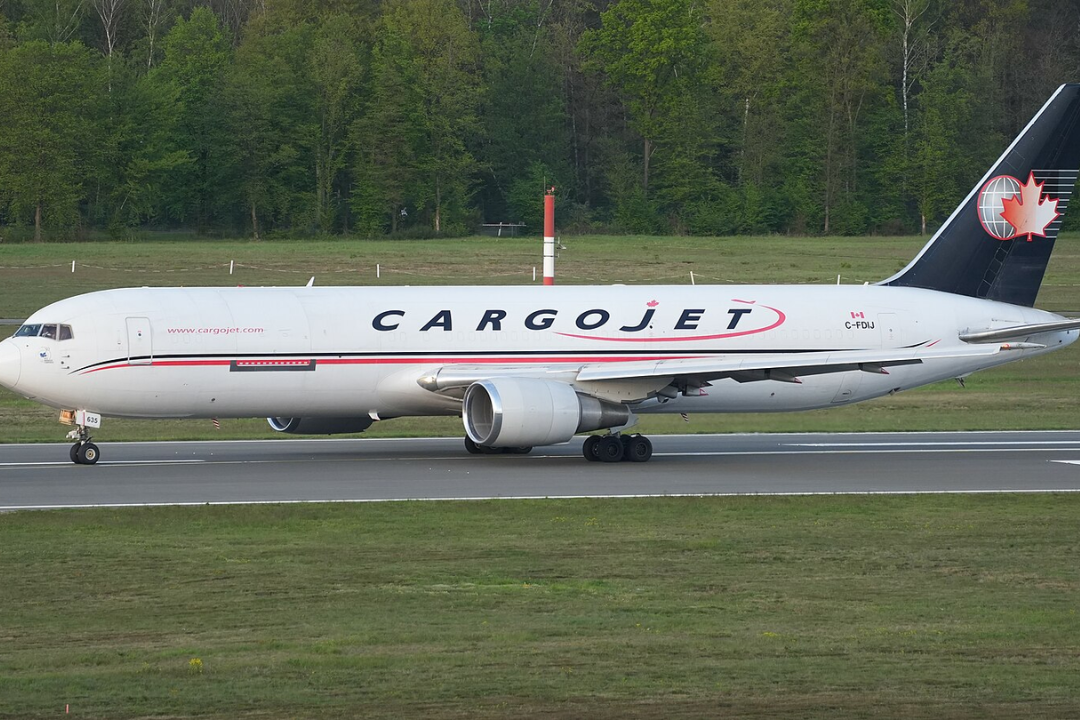
Canada’s air cargo industry has grown significantly over the years, and at the forefront of this growth is Cargojet , the country’s leading cargo airline. Known for its extensive network and commitment to reliable, time-sensitive deliveries, Cargojet has become a cornerstone of Canada’s logistics and supply chain infrastructure. It started with a man with a vision Cargojet was founded in 2001 by Ajay Virmani, a visionary entrepreneur who sought to address the growing demand for dedicated cargo services in Canada.
At the time, there was a gap in the market for a reliable, domestic cargo airline capable of providing overnight services across the vast expanse of Canada. Virmani’s vision was to establish a network that could seamlessly connect major Canadian cities while also tapping into international markets. According to the Financial Post , Virmani, who grew up in India, started life in Canada as a window cleaner before becoming a door-to-door vacuum cleaner salesman.

He then worked in factories testing mufflers – and eventually struck out on his own, ultimately buying the cargo operations of discount carrier Canada 3000 Inc. The aircraft originally reported a flaps problem as it was descending. When the 2001 attacks led to the airline going bust, Virmani persevered, buying four heavily discounted Boeing 727s – and Cargojet was born.
The Financial Post article stated: “In aviation circles, air cargo had always been an afterthought, since commercial airlines focused on moving passengers. Virmani’s master stroke was to forget about passengers altogether and dedicate his aircraft solely to moving things.” The beginnings: Cargojet's road to success Headquartered in Mississauga, Ontario, Cargojet began operations with a small fleet and a focus on overnight deliveries.
The airline quickly built a reputation for its punctuality, efficiency, and ability to handle a diverse range of cargo, from e-commerce packages to time-sensitive medical supplies. Since its inception, Cargojet has achieved several significant milestones that have solidified its position as Canada’s leading air cargo provider: Year Milestone 2002 Cargojet launched its Overnight Air Cargo Network, connecting key cities across Canada. This service allowed businesses to transport goods quickly and reliably, which became a major advantage for industries like e-commerce, healthcare, and manufacturing.
2005 Cargojet became a publicly traded company on the Toronto Stock Exchange (TSX), under the ticker symbol CJT. This move provided the airline with the financial backing needed to expand its operations and modernize its fleet. 2014 Cargojet entered into a long-term agreement with Purolator, one of Canada’s largest courier companies.
This partnership strengthened Cargojet’s position in the domestic cargo market, as Purolator relied on the airline’s extensive network for its overnight delivery services. 2015 Recognizing the potential for growth beyond Canada, Cargojet expanded its services to include international cargo routes. The airline established partnerships with global logistics providers, including Amazon, to support the growing demand for cross-border e-commerce.
2019 Cargojet’s partnership with Amazon reached new heights in 2020, as the e-commerce giant acquired a minority stake in the airline. This partnership further solidified Cargojet’s role in supporting Amazon’s logistics operations, not just in Canada but also internationally. Cargojet’s fleet and network According to Cargojet , it operates a fleet of all-cargo aircraft, optimized for the efficient transportation of goods.
Cumulatively, its aircraft operate more than 15,000 flight legs per year, boating an impressive 98.5% on-time reliability. The 43 aircraft in Cargojet’s fleet comprise the following models: Model Maximum Payload Total Volume Boeing 767-300ER 127,000 lbs (57,606 kg) 15,468 cubic feet (438.
0 cubic meters) Boeing 767-200ER 100,000 lbs (45,359 kg) 15,468 cubic feet (438.0 cubic meters) Boeing 757-200ER 80,000 lbs (36,364 kg) 8,358 cubic feet (236.67 cubic meters) Cargojet uses these aircraft to move freight for several major customers, including Amazon, DHL, and Canada Post.
Its 24/7 air cargo service spans Canada and reaches into international markets. Domestically, the carrier connects all major Canadian cities, including Toronto, Vancouver, Calgary, Montreal, and Halifax. Notably, its overnight delivery network ensures that goods can be shipped from coast to coast within hours, making it a vital partner for time-sensitive industries.
Outside Canada, Cargojet operates several international routes, including: Canada-US New York-Bermuda Corridor US-Mexico Europe East Asia Collaboration with Drake Perhaps one of Cargojet’s most notable publicity move is its collaboration with Canadian rapper and singer Drake . In 2019, Cargojet gifted the artiste a former cargo Boeing 767 worth an estimated $185 million. A further $100 million was spent refurbishing the jet to meet Drake’s touring needs.
“Air Drake”, as the jet is dubbed, features a custom light blue livery. Inside, plus leather seats, velvet couches and gold finishes adorn the cabin. It also boasts three private suites.
A very fortunate rap artist! Social media interest in Drake’s extravagant private jet eventually propelled Cargojet’s brand name into the mainstream, as many curious fans wondered how and why Drake came to have a free (and shockingly expensive) private jet. Challenges and future plans Despite its success, Cargojet faces challenges such as rising fuel costs, competitive pressures, and global supply chain disruptions. However, the airline has demonstrated resilience by adapting to these challenges through strategic partnerships and investments in technology.
Looking ahead, Cargojet plans to further expand its fleet, enhance its international network, and explore new markets. The airline’s focus on sustainability is also likely to play a key role in its future growth, as more businesses prioritize environmentally responsible logistics solutions. Conclusion: a leader in Canadian air cargo Cargojet’s journey from a small startup in 2001 to Canada’s leading air cargo provider is a testament to its vision and operational excellence.
By continually evolving to meet the needs of its customers, Cargojet has not only solidified its position in the domestic market but also made significant strides on the global stage. As the demand for reliable, time-sensitive cargo services continues to grow, Cargojet is well-positioned to remain a leader in the industry, driving innovation and setting new standards for air cargo in Canada and beyond. Whether it’s through its state-of-the-art fleet, extensive network, or strategic partnerships, Cargojet exemplifies the potential of Canadian aviation to compete on the world stage.
.













